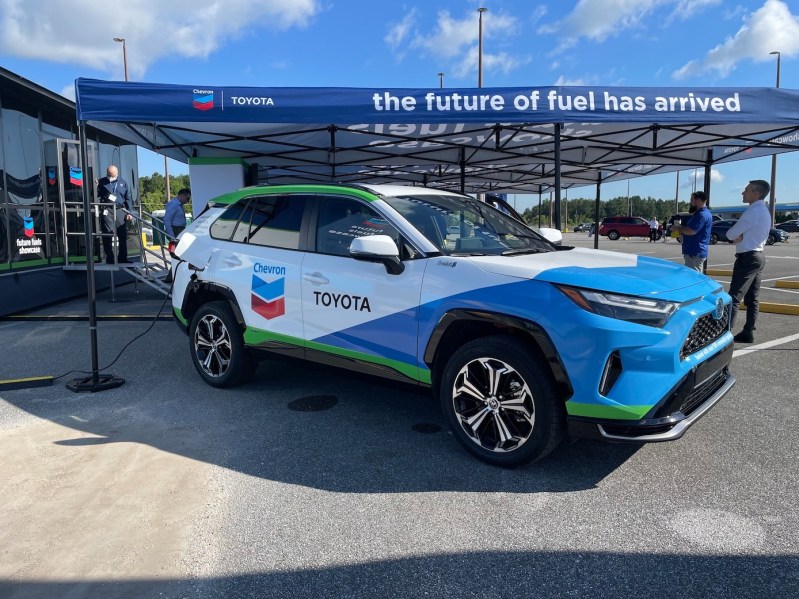
Days after the U.S. proposed its strictest ever tailpipe pollution limit requirements, Chevron Corp put into motion the showcase of its “renewable gasoline.” This gasoline boasts more than 50% renewable content and is partly made from renewable feedstocks like used cooking oil. According to Chevron, this fuel is over 40% less carbon-intensive than traditional gasoline, making it far better for the environment.
Recently, regulators worldwide have been pushing to electrify road transport to reduce emissions and carbon dioxide pollution. According to the pollution standards outlined by the Environmental Protection Agency, vehicle manufacturers must ensure around two-thirds of their light-duty vehicle sales are electric by 2032. Also, they must have alternative fuels that can provide fewer greenhouse gasses.
This has made numerous car manufacturers like Toyota and Chevron seek alternative ways to decarbonize the internal combustion engine through alternative fuel. Fortunately, Chevron’s new gasoline claims to offer emissions savings like what is currently seen with electric cars in time.
Chevron’s offerings growing
Chevron has developed this fuel and is growing its offering of biofuel solutions for customers because it believes lower carbon emissions transportation is the way of the future. It has multiple projects underway, developing renewable natural gas, biodiesel, hydrogen fueling, and renewable diesel blends. Each of these alternative fuels is developed, produced, and tested by Chevron, with the goal of being used in the near future to reduce the need for traditional gasoline.
According to Andy Walz, Chevron’s president of Americas Products, changes are necessary for the U.S. and globally to lower carbon emissions. He said: “Multiple solutions are needed to help lower the carbon intensity of the transportation sector. With more than 265 million gasoline-powered vehicles on the road today in the United States, renewable gasoline blends could empower virtually all drivers to have a role in a lower carbon transportation future.”
Chevron and Toyota’s road trip partnership
To demonstrate that this fuel is viable, Chevron and Toyota have partnered to perform an alternative fuel road trip running from Mississippi through Louisiana before ending in Texas.
Three Toyotas will take this trip — a Tundra, Camry, and RAV4. According to Walz: “We are excited to partner with Toyota for the opportunity to demonstrate lower carbon technologies that are compatible with internal combustion engines.”
During the tour, Chevron representatives will speak to members of the public about the numerous benefits of renewable gasoline blends and biofuels. Ultimately, these representatives will tell the public how renewable gasoline blends can be used in the existing fueling network with current automotive fleets. Those interested in learning more about the fuel tour and what’s discussed can follow it on LinkedIn or Twitter with the hashtag #futurefuelsshowcase.
However, it’s important to note that it will be a while before Chevron can sell this alternative fuel because of the costs associated with producing it. According to Walz, it’s believed that for this fuel to be commercially viable, it will need fiscal initiatives.
Despite these financial challenges surrounding the development of alternative fuels, Chevron and Toyota continue to pursue a strategic alliance to explore new fuel technologies and hydrogen fuel solutions within the transportation sector.



